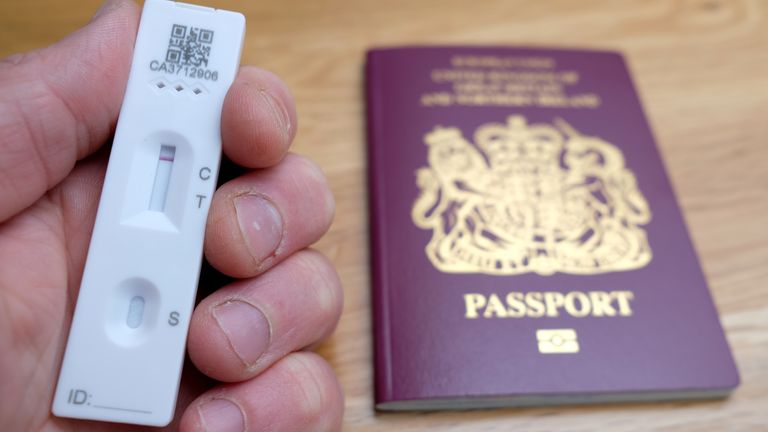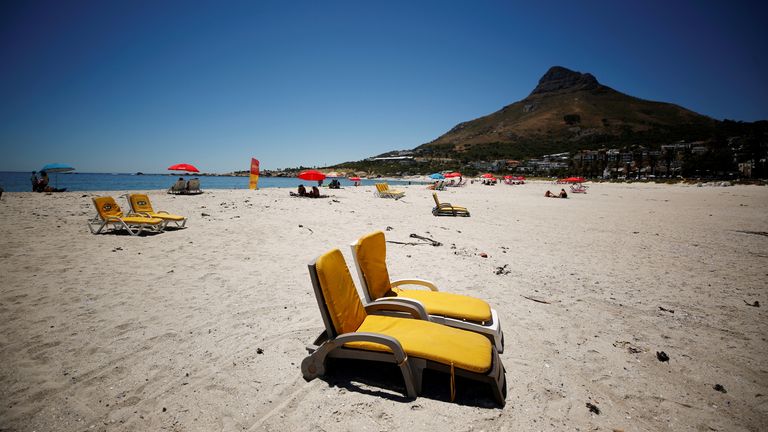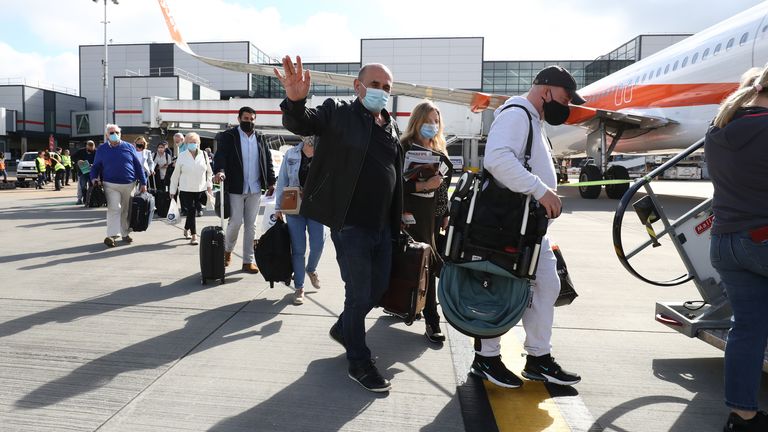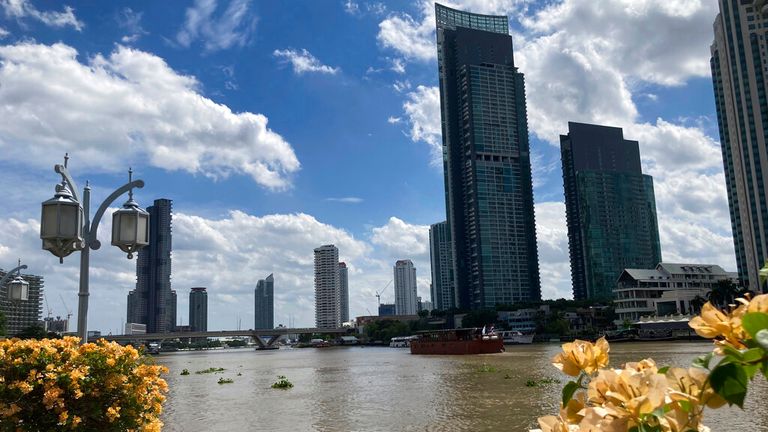Grant Shapps has said he wants returning international travellers to be able to use lateral flow tests instead of costly PCR tests by the half-term holiday.
Speaking to Sky News, the transport secretary said ministers “anticipate” the change coming into force before the October break which will make family trips abroad “much easier, much less expensive as well”.
Most schools will break up for half-term on Friday 22 October, and will have 25-29 October off, before pupils return to class on 1 November. Terms dates will vary by council.
Latest coronavirus updates from the UK and around the world
“We want to get this done for half-term for people,” Mr Shapps told Sky News on Friday.
“I know my colleagues at [the Department of] Health and to some extent the Home Office – they are the people that have to implement this change – are working extremely hard on getting this done.
“And so we anticipate having it ready for the half-term.”
Pushed on when an official announcement would come from the government, the transport secretary added: “In the coming days.
“We know obviously the half-term is coming up and my advice to people would be just to hold off.
“You will need to make sure you have got a lateral flow test booked and you will put the reference number on your passenger locator form before you come home.”
The government previously said its “ambition” was for this to be in place “for people returning from half-term breaks by the end of the month”.
On Thursday evening, the Transport Select Committee said: “Passengers and the travel industry need urgent clarity or it will be too late for those who need financial certainty to book the October half-term holiday.”
Mr Shapps later told Times Radio that 22 October, the beginning of half-term for most schools, is “the goal” date for the change, adding that “testing companies are gearing up to do that”.
Ministers announced on Thursday that later this month, fully vaccinated travellers from approved countries will be able to take a lateral flow test on day two after arriving, instead of a pricey PCR test, and they will be able to send a picture of their test to verify the result.
It follows backlash from members of the travel industry who suggested costly PCR tests were putting people off flying to non-red list countries.
If returning travellers test positive then they will be given a free PCR test to confirm and passengers who are fully vaccinated in countries not on the approved list will still have to take a pre-departure test, a day two and eight test and complete 10 days self-isolation, with the option of test to release on day five.
In the same travel update, the government also slashed the travel red list for England and Wales to just seven countries.
Scotland and Northern Ireland have not announced if they will follow suit, but they often have throughout the pandemic.
The 47 nations to be removed from the no-travel category as of 4am on Monday include South Africa, Thailand, Mexico and the Seychelles and travellers arriving from those destinations will no longer have to quarantine in a government-approved hotel for 11 nights at a cost of £2,285.
The only countries remaining on the red list are Panama, Colombia, Venezuela, Peru, Ecuador, Haiti and the Dominican Republic.
Transport Secretary Grant Shapps also added 37 countries to the list of locations with approved COVID-19 vaccine programmes, so travellers from those non-red list countries no longer have to quarantine for 10 days on arrival from Monday, take a pre-departure test or the day eight post-arrival test.
The destinations include India, Turkey, Hong Kong, South Africa, Brazil, Pakistan, Kenya and Ghana.
Also included is the United Nations COVID-19 vaccination programme, under which staff at UN duty stations who cannot get World Health Organisation approved vaccines will be provided with them.
Mr Shapps also told Sky News he does not have a specific date in November yet for the US to fully reopen to visitors from the UK.
The transport secretary said he had spoken with the US ambassador in recent days, adding: “They (the US) are still working through the technicalities of that. They’ve said November to us and obviously we’re working very closely with them because we would like to see that done so families can reunite, businesses can get together and people can go travelling again.
“So we think it’s certainly well due. We’re allowing Americans here, we’re recognising their vaccines.”
The travel industry has been largely positive about the announcements following more than 18 months of minimal travel and continuous rule changes.
Mark Tanzer, chief executive of ABTA – The Travel Association, said the smaller red list is a “sensible step forward” and means now is the “best time in a long time” to book an overseas holiday.
Meanwhile, British Airways chief executive Sean Doyle said the UK will “benefit” from the changes but also called for an end to testing for fully vaccinated travellers “to ensure we don’t lose our place on the global stage”.














